With the death of Ali Akbar Hashemi Rafsanjani, Iran’s former president and its preeminent fixer, the Islamic Republic has begun the most consequential leadership transition in its four-decade history. Rafsanjani’s departure from the scene will change little in the near-term struggle for primacy among the theocracy’s squabbling elites, but it is a harbinger of a larger process of generational transition that will determine whether the revolutionary state can sustain itself amidst a myriad of domestic and regional challenges.
The echoes of opposition slogans chanted in his funeral march on Tuesday underscore the frustration and uncertainty that is Rafsanjani’s ultimate legacy: his shrewd, ruthless pragmatism enabled the Islamic Republic to weather intense crises, but could not overcome the fundamental impasse between the state’s ideological imperatives and the expectations of its citizenry and the world.
Regime survival was Rafsanjani’s métier, and in this regard, his achievements were substantial although inevitably stop-gap. He helped coalesce the revolution’s nascent leadership amidst the intense turmoil that beset the country after the ouster of the Shah, then turned his prodigious political talents to managing a fractious parliament during the war with Iraq. He was trusted to devise an exit strategy for that ruinous conflict, and shortly thereafter played a central role in navigating Iran’s first leadership transition following the death of the revolution’s founder, Ayatollah Ruhollah Khomeini. In his two terms as president, Rafsanjani managed to extricate the country from diplomatic isolation and economic collapse, and subsequently remained a force to be reckoned with as one of the revolution’s more industrious elder statesmen.
The political space that he occupied resists neat categorization.
Rafsanjani’s presidency played pivotal role in shaping Iran’s subsequent evolution. His embrace of economic development transformed the underlying social contract from one of revolutionary opposition and existential defense to one grounded in expectations of development and progress. His policies spawned divergent ideological movements, each of which rejected Rafsanjani’s own orientation. The political space that he occupied resists neat categorization, which helps explain the howling debate that erupted on social media in Persian and English after his death this week over whether he could be rightly described as a moderate. For his part, the former president saw himself as “a pragmatist,” as he acknowledged in 1993, when the term might have been construed as controversial within Iran. “I am interested in facts and practicality.”
Although he was a cleric and a committed revolutionary, Rafsanjani’s ideological dexterity was apparent from the outset—so much so that Reagan-era officials hoped to empower him to challenge Khomeini, thus inspiring the disastrous Iran-contra arms deals. He helped legitimize an interests-based approach to the theocracy’s decision making, as enshrined in an Orwellian-sounding state body that he led nearly since its 1988 establishment, the Council for the Discernment of the Expediency of the System. At the time, his advocacy of realism over ideology earned Rafsanjani the ire of much of the revolutionary establishment, particularly hard-liners who saw the cease-fire with Saddam Hussein and the subsequent economic reconstruction program as a betrayal of the regime’s core values and an endorsement of elite enrichment.
That Rafsanjani’s death seemed to take Iranians by surprise, and that it provoked such an outpouring of public emotion, is a testament to his singular stature in the panoply of Iranian leaders. For four decades, he occupied almost every senior post in the Islamic Republic, placing him near—but never atop—the pinnacle of power in Iran. In the twilight of his tumultuous career, one that included two humiliating losses at the ballot box and his disqualification from the 2013 presidential race, he had assumed an almost larger-than-life stature. Still, even among his many detractors, an appreciation of Rafsanjani’s tactical virtuosity and internationalist orientation cultivated hopes that he might ultimately swing the revolutionary state firmly back into the community of nations.
It was not to be; Rafsanjani was only, ever, a man of the system, and over the past four decades, that system has proven exceptionally resistant to efforts to tame its excesses. Rafsanjani’s innate expedience was always put to the service of the revolutionary state, and perhaps secondarily his own pocketbook and that of his family.
He never wavered in his support for the Islamic Republic, pioneering the use of election rigging as a means of sidelining rivals and overseeing vicious campaigns at home and abroad intended to eliminate its adversaries and extend its influence. He was equally indifferent to Iran’s representative institutions and its citizens’ basic rights as to the excesses of the regime’s ideology. And while he consistently sought to improve Iran’s image and relationships abroad, he never proved willing or capable of reining in the regime’s reliance on terror and destabilization as a lever of regional influence—which constrained the horizons of Iran’s rehabilitation.
This track record was no secret to Iranians. But his refusal to roll over and keep quiet after the events of eight years ago, when millions came to the streets to protest a contested election only to meet with regime repression, unexpectedly elevated the former president in the minds of many. Ever the pragmatist, he navigated that crisis warily, but even his modest proposal for a truce with the opposition Green Movement represented a direct challenge to the authority of Ayatollah Ali Khamenei, the supreme leader and Rafsanjani’s old comrade-in-arms whose authoritarian tendencies had ballooned during his three-decade tenure. Choosing sides in that schism came at some personal cost; in the years that followed, Rafsanjani remained an elder statesman, but his family was targeted for legal harassment and his own influence somewhat blunted.
With attention already focused on Iran’s upcoming presidential election as well as the lurking issue of succession for the post of supreme leader, Rafsanjani’s death is a reminder that informal networks remain an essential aspect of Iranian policymaking. While analysts often fixated on the fluctuations in Rafsanjani’s various official roles, those mattered far less than his extraordinary reach within the establishment.
Rafsanjani’s demise looms large for the Iranian political establishment, whose old guard is dying off at an accelerating rate.
That is now gone, prompting speculation that Rafsanjani’s death may further weaken his ideological fellow travelers, an eclectic array of pragmatists, moderate conservatives, and embattled reformist, and possibly further endanger the prospects of President Hassan Rouhani in his May reelection bid. These anxieties are mostly overblown; Rafsanjani’s death is unlikely to manifestly alter the course of the election. And as Rafsanjani himself assured several interviewers in recent months, Rouhani’s prospects are reasonably strong, despite the ferocity of Iran’s factional wrangling and the questions about his chief achievement, the July 2015 nuclear deal. If anything, the reminder of the leadership’s mortality will reinforce their commitment to retaining a clerical loyalist in the office of the presidency.
Still, Rafsanjani’s demise looms large for the Iranian political establishment, whose old guard is dying off at an accelerating rate. As the gerontocracy passes from the scene, their replacements are already being readied, but the process of change itself inevitably creates uncertainty and openings. Within the foreseeable future, Khamenei’s final farewell will arrive. The Islamic Republic has managed one momentous succession process before, at the 1989 death of the revolution’s charismatic founder, Ayatollah Ruhollah Khomeini. The man responsible for the smooth navigation of that precarious moment was Rafsanjani himself. Who may play that role next time around remains unknown, and the simmering disaffection of Iran’s next generation, as expressed in the opposition chants at Rafsanjani’s funeral, should preoccupy the guardians of the revolution as they prepare for whatever may come next.
The Brookings Institution is committed to quality, independence, and impact.
We are supported by a diverse array of funders. In line with our values and policies, each Brookings publication represents the sole views of its author(s).
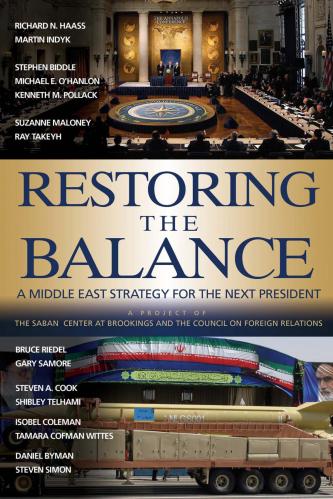
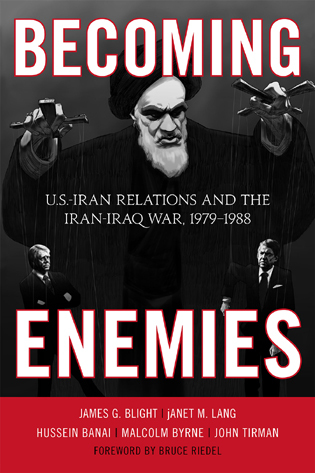
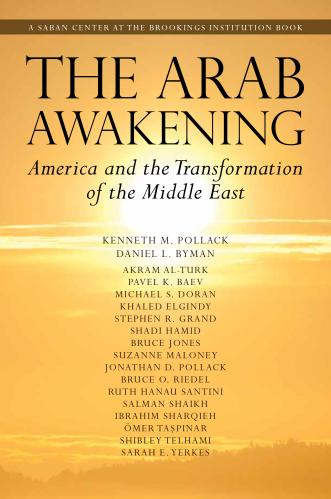
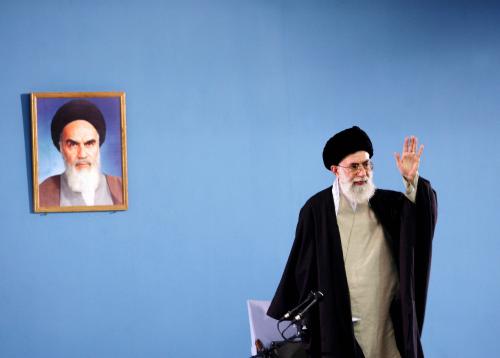


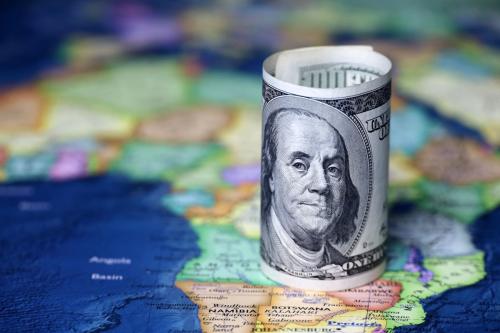
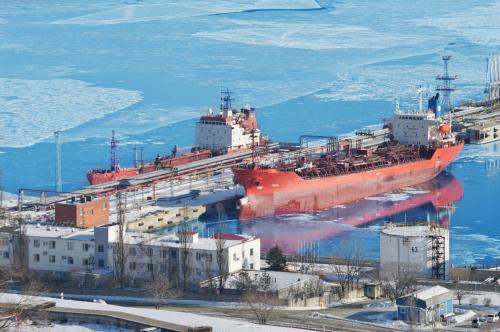
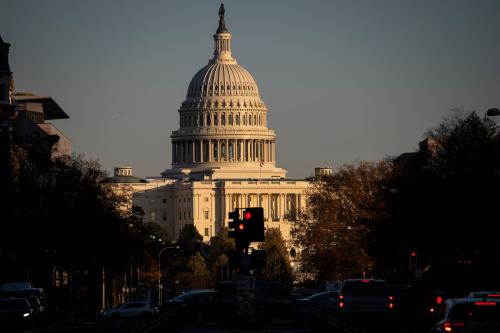
Commentary
Rafsanjani proved that pragmatism couldn’t moderate Iran
January 13, 2017